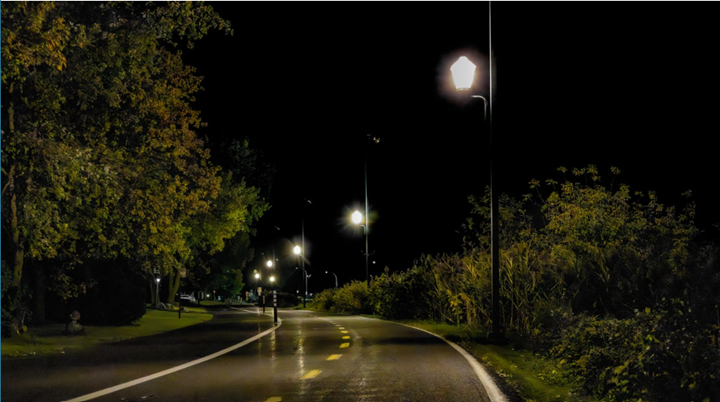
Streetlights Disrupting Natural Ecosystems, New Study Shows
Leaving streetlights on all night appears to significantly alter the surrounding natural ecosystem, a recent study reveals. The continuous illumination seems to toughen plant leaves, making them harder for insects to consume.
Researchers at Beijing's University of Chinese Academy of Sciences observed that tree leaves near streetlights exhibited less insect damage compared to those in rural areas. They investigated 180 trees along roads in Beijing, assessing light exposure and analyzing nearly 5,500 leaves for various properties, including toughness, nitrogen levels, tannins, and water content.
Plants under stress often fortify themselves by becoming tougher and producing chemical defenses like tannins. This response was evident in trees exposed to constant artificial light. The leaves in areas with the most artificial light were the toughest and showed no signs of insect consumption. Consequently, these leaves likely decompose more slowly, potentially altering the soil composition beneath and around the trees.
Streetlights also affect the surrounding environment in numerous ways. According to the British Trust for Ornithology, birds such as robins and crows have been found to sing and forage at night near artificial lights. Additionally, blue tits living near streetlights were found to lay eggs earlier than usual.
In the UK, many streetlights have been switched to eco-friendly LED bulbs, replacing traditional sodium lights used in Beijing. However, a 2021 study by the UK Centre for Ecology and Hydrology, Newcastle University, and Butterfly Conservation found that LED bulbs are more detrimental to insects. These bulbs reduced moth caterpillar populations in hedgerows by 52% compared to unlit areas, whereas sodium lights caused a 41% reduction. Researchers believe streetlights may deter nocturnal moths from laying eggs or expose them to predators like bats.
This study underscores the profound impact of artificial lighting on natural ecosystems, highlighting the need for careful consideration of streetlight usage to mitigate environmental disruptions.